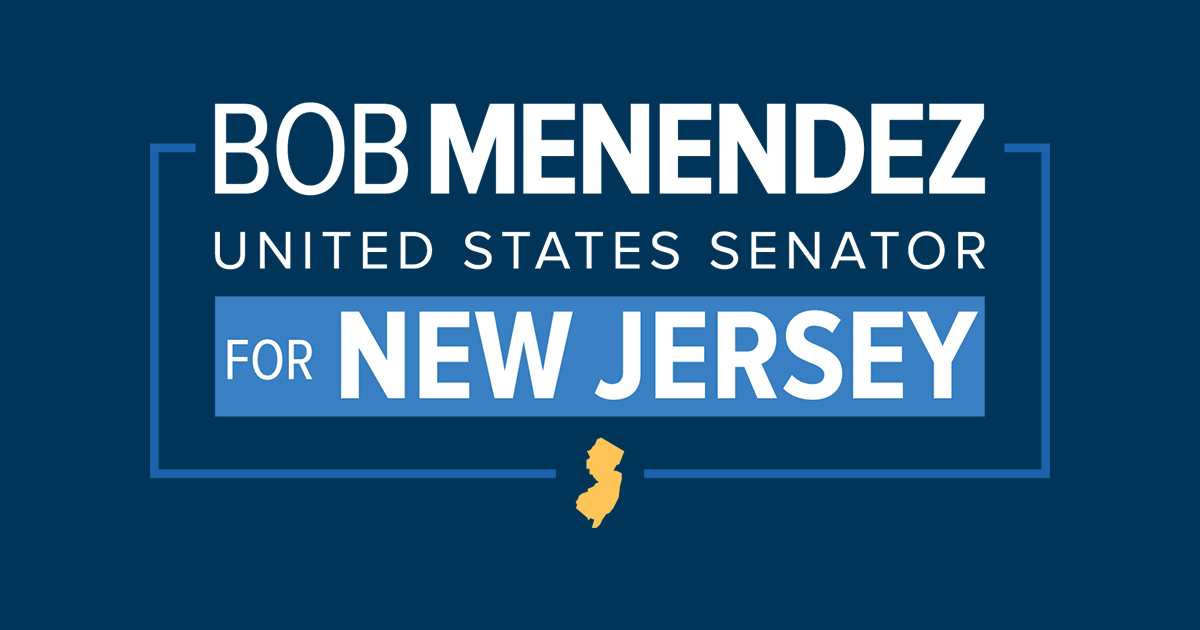Source: United States Senator for New Jersey Bob Menendez
WASHINGTON, D.C. – U.S. Senators Bob Menendez (D-N.J.) and Mazie Hirono (D-Hawaii) today introduced the Insular Area Climate Change Act, a bicameral piece of legislation that would provide financial and technical support to the more than 3.5 million U.S. citizens and nationals that reside in U.S. affiliated insular areas for climate change planning, mitigation, adaptation, and resilience efforts.
“Climate change is an existential threat that we cannot afford to ignore, especially as U.S. affiliated insular areas and communities across the country bear the brunt of its devastating impacts,” said Sen. Menendez. “This commonsense bill will help provide much needed financial and technical support to U.S. territories and freely associated states that have for too long had unequal access to federal programs designed to upgrade existing infrastructure, build greater climate resiliency, and reduce over-reliance on petroleum.”
“Island communities are already confronting the impact of climate change and will need a variety of tools to face this growing threat in the future,” said Sen. Hirono. “This bill strengthens and focuses the federal government’s efforts in providing support to the insular areas through grants and technical assistance for efforts such as increasing infrastructure resilience and expanding renewable energy.”
In 2017 Puerto Rico and the U.S. Virgin Islands were hit hard by Hurricanes Irma and Maria. These natural disasters resulted in thousands of deaths and significant damage to local infrastructure, including Puerto Rico’s fragile power grid. In 2018, Typhoon Yutu struck the Commonwealth of the Northern Mariana Islands and Guam, causing multiple deaths and destroying thousands of homes in the two territories. The impacts of these extreme weather events are linked to the ever-increasing impacts of climate change, and these effects have been compounded in insular areas due to unequal access to federal programs intended to help communities with climate change planning, mitigation, and resilience efforts.
The Insular Area Climate Change Act would:
· Create a federal interagency task force to provide U.S. territories greater access to climate change-related federal programs;
· Establish an Office of Insular Area Energy Policy and Programs within the Department of Energy to better direct energy management, planning, delivery, and conservation programs in the insular areas;
· Launch an Insular Area National Program Office within the Environmental Protection Agency focused on strengthening infrastructure to withstand natural disasters, expanding renewable energy and energy efficiency, providing technical assistance, and centralizing EPA efforts in the insular areas;
· Create multiple grants to study and develop technologies to reduce climate crisis impacts in the insular areas;
· Implement additional grant programs to expand renewable energy and energy efficiency and develop sustainable infrastructure to withstand natural disasters in the insular areas;
· Cancel federal loan repayments and waive matching fund requirements for insular areas, which for decades have struggled with limited financial resources;
· Require a report by the Secretary of the Interior in consultation with independent experts that includes an analysis of nuclear waste and other toxins within the Enewetak Atoll, including the “Runit Dome” nuclear waste disposal site and the dumping areas in Enewetak’s lagoon, and plans for relocating this waste to a secure facility; and
· Highlight the importance for Freely Associated States to have the tools they need to address and mitigate the impacts of climate change and rising sea levels through their respective Compacts of Free Association.
Local governments, climate change experts, organizations, and insular communities contributed to the development of this bill. This legislation is supported by the Environmental and Energy Study Institute (EESI), Climate Strong Islands Network, University of Guam – Center for Island Sustainability and Sea Grant, University of the Virgin Islands – Caribbean Green Technology Center, Puerto Rico Energy Bureau, Solar and Energy Storage Association of Puerto Rico, San Juan Bay Estuary Program, Liga de Ciudades Puerto Rico, and the Honorable Lourdes A. Leon Guerrero (Governor of Guam).
Companion legislation was introduced earlier this year in the House of Representatives by Representatives Raúl M. Grijalva (D-Ariz.), Nydia Velázquez (D-N.Y.), Darren Soto (D-Fla.), and Delegates Gregorio Sablan (D-CNMI), Stacey Plaskett (D-V.I.) and Michael San Nicolas (D-Guam).
###
